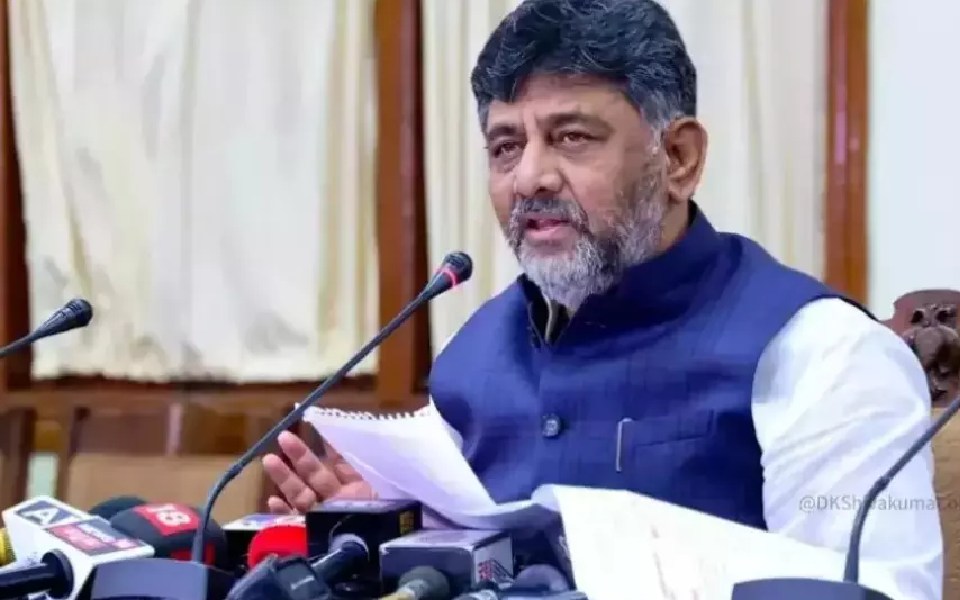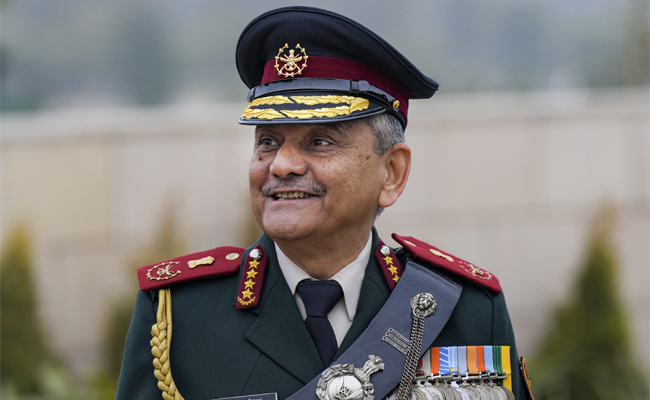Bengaluru, Jul 16: Karnataka Deputy Chief Minister D K Shivakumar on Tuesday made a passionate appeal to the Tamil Nadu government to cooperate with the implementation of the Mekedatu project across river Cauvery which, he said, would be more beneficial to the neighbouring State.
He also expressed hope about "problems in releasing water to Tamil Nadu to get sorted out, if god permits" and the rains continue in the Cauvery catchment areas of Karnataka.
"One thing I would like to appeal to Tamil Nadu, for your interest and our interest. More than our interest it is your interest, this Mekedatu reservoir, you just permit us, whatever storage we will do, we will give you that water, we can't take back that water," Shivakumar said.
Speaking to reporters here, he said: "It is my humble appeal on behalf of the people of Karnataka, where all sections -- Tamilians, Kannadigas, Andhraites and people from North India -- are there. It is for Bengaluru for drinking water and it is for you (Tamil Nadu). Please permit us for Makedatu, don't object, we will cooperate in whatever way we can."
ALSO READ: 1.5 tmcft of Cauvery water flowing to Tamil Nadu daily, says DK Shivakumar
Mekedatu is a multi-purpose (drinking water and power) project proposed by Karnataka, which involves building a balancing reservoir near Kanakapura in Ramanagara district.
Tamil Nadu has been opposing the project, raising apprehensions that the state would be affected if the project takes shape.
The project, once completed, is aimed at ensuring drinking water to Bengaluru and neighbouring areas (4.75 tmcft); it also can generate 400 MW power, and the estimated cost of the project is Rs 9,000 crore (2019 rates), according to Karnataka officials.
A separate Project Division and two Sub-Divisions have already been set up to implement the ambitious 'Mekedatu Balancing Reservoir and drinking water project of Cauvery river valley', Chief Minister Siddaramaiah had said, presenting the state budget in February.
"A survey to identify land that will be submerged under this project and the counting process of trees have already been initiated," he had also said, adding, "action will be taken on priority to commence the work early after obtaining remaining necessary clearances from the competent authorities."
Responding to a question regarding Tamil Nadu holding an all party meeting about getting Cauvery water for the state from Karnataka, Shivakumar said: "Tamil Nadu has every right to meet as we met, we don't object to their meeting, I don't want to comment on that."
He said: "At the same time from yesterday I'm getting good inflow, more than 50,000 cusecs inflow in Cauvery region, whatever is there we are allowing the water to go out of Harangi (dam), I think more than 20,000 cusecs was going out from Harangi and other places. If gods permit us, all our problems will be sorted out."
Asked if his government will honour the directive of the Cauvery Water Regulation Committee (CWRC) to release one tmcft of Cauvery water to Tamil Nadu if rains continue at this rate, Shivakumar said: "of course, of course, we have to (release), we will. Whatever the inflow is coming, we are not holding it, we are leaving it to Mettur (in Tamil Nadu)."
Siddaramaiah had after an all party meeting on Sunday said the government was ready to release 8,000 cusecs of water from the Cauvery river every day to Tamil Nadu instead of one tmcft (11,500 cusecs).
The storage in the four reservoirs in the Cauvery basin stood at 63 per cent of the total capacity and, in this situation, the state was not in a position to release one tmcft water every day, the Chief Minister had said.
Let the Truth be known. If you read VB and like VB, please be a VB Supporter and Help us deliver the Truth to one and all.
Hyderabad (PTI): Asserting that war and warfare is at the cusp of a major revolution, Chief of Defence Staff (CDS) General Anil Chauhan on Saturday said the Indian Defence forces are committed to adapting to changing environment and imbibing reforms to remain ready and relevant.
Addressing the Combined Graduation Parade (CGP) of 216 Course held at the Air Force Academy at Dundigal near here, General Chauhan said India's strength rests on robust institutions, democratic stability, and unwavering professionalism of our Armed Forces.
He said the intensity of operations may have ebbed, but Operation Sindoor continues.
"You (new officers) also join the Air Force at a moment when a new normal has firmly taken shape. An era defined by a high degree of operational preparedness, 24-7, 365 days. The intensity of operations may have ebbed, but Operation Sindhur continues," he said.
He further said the newly trained officers are entering the Indian Air Force during a phase of deep transformation of the Indian Armed Forces.
Integrated structures, joint operations, and national pursuit of Atmanirbhar Bharat in defence are shaping the future of India's military strength, he said.
"Your journey ahead will be accordingly guided by Jai, the first word of Jai Hind, that's victory. 'J' stands for jointness, fighting as one nation, one force. 'A' stands for Atmanirbhar Bharat, trusted platforms and systems made not just for India but for the world. And finally, 'I' for innovation, daring to think ahead and to be ahead of the curve," he explained.
General Chauhan further said battles in the older domains will always remain contested, often brutal. But in the new domains, they will be smart, swift, and shaped by intellect, innovation, and initiative. The force that masters new frontiers is more likely to prevail in future conflicts.




